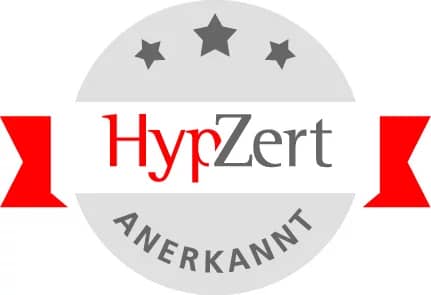University-level Education
The IREBS Executive Education is part of the Faculty of Business, Economics, and Management at the University of Regensburg.
4 months
Berlin, Monastery of Eberbach and Frankfurt, Munich
In-class Teaching
Sustainable Real Estate Manager (IREBS)
German
16
from €7,130

The real estate industry has been significantly impacted by the ESG framework (Environment, Social, Governance) and the EU Taxonomy. These challenges are not new, and the expected regulatory changes have already arrived. Sustainability now envelops every stage of property planning and the entire lifecycle.
The Sustainable Real Estate Management programme offers a clear path to navigate regulatory frameworks for property transactions, leverage advanced technology in planning and construction, and consider the economic implications of property operations. As sustainability necessitates comprehensive transformations, it is essential to develop strategies that embrace change, prepare for it, and foster motivation.
Experience the numerous advantages of our programme “Sustainable Real Estate Management”: Upon successful completion of the SREM programme, you will be entitled to carry the title “Sustainable Real Estate Manager (IREBS)”. Our part-time study programme comprises 16 ECTS and is recognized as professional development according to HypZert standards.
Discover more benefits and explore how this study programme can unlock your professional potential.
| Early Booking Dates | |
| before Jan. 15th (programme start Mar.) | before Aug. 15th (programme start Oct.) |
| Schedules | |
| Frankfurt schedule 2024 | |
| Munich schedule 2024 |
Do you have any inquiries regarding the study programme? Feel free to reach out to the Study Management. We are eager to address your queries!
| Telepone: | +49 (0) 6723 9950-30 |
The part-time SREM programme provides a compact learning opportunity, spanning a total of four months and divided into six modules, with each module ranging from two to four days in duration. Additionally, participants will join an excursion in Frankfurt as part of the programme.
Throughout the programme, participants will spend a combined total of 16 days attending sessions at the IREBS Executive Education, equivalent to a net working time of 12 days. The programme carries a weight of 16 ECTS credits in terms of content and scope. At the conclusion of the modules, all subjects will be assessed through a comprehensive final examination.

We place the concept of sustainability in the real estate industry within a historical context, providing comprehensive insights into the European and German regulatory landscape. We delve into the significance of ESG (Environment, Social, Governance) and its implications for the financial and real estate sectors. Furthermore, we explore the economic feasibility of implementing a sustainable strategy under these conditions. Throughout the programme, a practical case study accompanies us, serving as a cohesive thread across all modules.
Selection of Topics:
During the second module, we take you through an active journey of the entire acquisition process, encompassing valuation, risk assessment (ESG due diligence), and utilization of tools, all with a strong emphasis on sustainability and addressing the challenges posed by taxonomy.
Selection of Topics:
In the Planning and Construction module, we delve into technical aspects, such as project development, procurement and materials, and energy and building technology. We explore both new construction and existing buildings, examining real-life examples, challenges, and opportunities. Additionally, we explore the role of digitalization and data, and how buildings can be certified, utilizing our practical case study as a reference.
Selection of topics:
This module places a strong emphasis on data, as it forms the basis for sustainable building development and future prospects. You will gain knowledge about diverse approaches to data collection, interpretation, and deriving meaningful insights. Through an interactive workshop on data acquisition, you will learn practical techniques for capturing data and leveraging it for reporting and control purposes. Furthermore, topics such as value management and corporate governance will be explored. You will also receive insights into reporting obligations and ethical principles within the industry, including standards set by organisations like ICG, RICS, and IES.
Selection of topics:
In the fifth module, we shift our attention to the operational aspects of real estate and the potential for sales. You will acquire a comprehensive understanding of the legal fundamentals concerning green leases, compare them with international alternatives, and explore their strategic implications. Moreover, you will gain insights into effective communication and impactful marketing strategies in the context of sustainability. To solidify your learning, a hands-on excursion will allow you to apply these concepts in real-world scenarios.
Selection of topics:
The last module of the programme canters around the implementation of sustainable guidelines and strategies within an organisation. Starting with a theoretical foundation, participants will develop practical strategies by incorporating the knowledge gained throughout the course. The strategies learned in Module 1 will serve as a starting point and will be integrated with all other aspects. This module provides valuable insights into the concept of leadership within the taxonomy, considering the social component and exploring how to successfully navigate the transition towards a sustainable organization. Participants will also delve into the topics of internal communication and external marketing, examining their significance in the context of sustainability.
Selection of topics:
The completed degree corresponds to 16 ECTS in terms of content and scope.
| Tuition fees: | €7,750 |
| Early bird rebate: | €7,130* |
| Reduced tuition fee: | €7,130** |
*The early bird rebate is available if you register by Jan. 15th (prior to programme start in March), or by Aug. 31st (prior to programme start in Nov.).
**Alumni, members of IMMOEBS e. V. or IREBS Core e. V., HypZert-certified valuers.
All prices are subject to the legally applicable VAT. Discounts are not cumulative.
The fees will be divided into three instalments:
I. Instalment (20%): 14 days after receiving the written acceptance
II. Instalment (40%): four weeks prior to the start of the programme
III. Instalment (40%): at the beginning of the programme
The Sustainable Real Estate Management part-time programme is open to the following individuals:
Graduates of the short course Sustainable Real Estate Management obtain the title "Sustainable Real Estate Manager/-in (IREBS)“.
The completed course corresponds to 16 ECTS.

Participation in the "Sustainable Real Estate Management“ is recognised as professional development by HypZert. Participants will be awarded one day of professional development for each day attended, with a maximum of 3 training days per calendar year.
There is a separate schedule for each degree programme, which can be found and downloaded by clicking on the start date of the individual degree programmes.
Whether educational leave can be applied for depends on two factors: Firstly, a Vocational Training Act must be in force in the federal state in which one's employer operates. Secondly, the continuing education provider must be recognised according to the criteria of the federal state.
Since Bavaria does not have a vocational training act, employees from this federal state cannot apply for educational leave. Interested workers from NRWBerlin or Hamburg, on the other hand, are generally entitled to ten days of educational leave within two years, which the employer can grant on application under certain circumstances. If you would like to know whether you can apply for educational leave and what steps you need to take, please contact our study manager Katja Bobber.
You can find more information at www.bildungsurlaub.de
ECTS credit points are used at European higher education institutions as comparable study programme assessments. The credit points measure the total time spent by the student. This includes the time spent on lectures as well as their preparation and follow-up, the time spent on exam preparation, exams, final papers as well as coursework and also that spent on internships.
Certificates are awarded once every six months in the form of an academic ceremony at Eberbach Monastery.
Those who are unable to receive their certificate in person can request to have it sent by post.